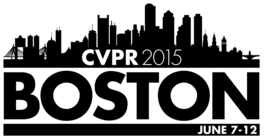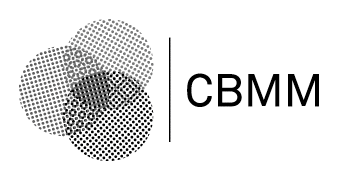Jan 8, 2014 - 9:00 am Venue:
Massachusetts Institute of Technology: MIT Address:
77 Massachusetts Ave
Cambridge, MA 02139
United States
Free
Registration by invitation only
Agenda:
Wednesday:
Participants arrive in Cambridge
5:30-7:30 PM, Room 46-3015
Introductions:
Welcoming remarks: Tommy Poggio
Overview: Mandana Sassanfar
Research presentation: Ed Boyden
Thursday: EDUCATION PROGRAMS – Moderator: Ellen Hildreth
Morning: 9:00 -12:00 in Room 46-3015
- Overview of the CBMM education program and goals:
- Curriculum and building bridges between neuroscience and CS within each institution:
- UPR: Irving Vega
- UCC: Maria Bykhovskaia
- CUNY: Susan Epstein
- Howard: Mohamed Chouikha
- Wellesley: Mike Wiest
- CBMM courses and summer course:
- Ellen Hildreth
- L. Mahadavan
- Preparation for graduate and postdoctoral work in intelligence science:
- General discussion: Building collaborations on course and curriculum development across institutions.
Afternoon: 1:00 -5:00 – Quantitative Biology Workshop in Room 32-080
Visiting faculty attend Quantitative Biology Workshop session on the use of MATLAB in Neuroscience, to experience a model for future January workshops
https://biology.mit.edu/outreach_initiatives/quantitative_biology_workshop
Evening: - Networking and discussions
Friday: RESEARCH PROGRAMS – Moderator: Patrick Winston
Morning: : 9:00 -12:00 in Room 46-3015
- Overview of CBMM research goals and four thrusts
- Patrick Winston: Research Overview
- Gabriel Kreiman: Circuits for Intelligence
- Boris Katz: Visual Intelligence
- Nancy Kanwisher: Social Intelligence
- Josh Tennenbaum: Development of Intelligence
- Specific research lab overviews
- Robert Desimone
- Matt Wilson
- Research at each partner institution
- UPR:
- UCC: Maria Bykhovskaia
- CUNY: Susan Epstein
- Howard: Kebreten Manaye, Robert Rwebangira
- Wellesley: Bevil Conway
- Discussion of research interests of CBMM and visiting faculty
Afternoon: 1:00 – 5:00
Individual and small-group meetings with MIT/Harvard CBMM faculty in faculty individual offices and labs(exploring synergies for summer sabbaticals, faculty seminars, and students research opportunities)
1:00 -2:00 fMRI demo in Martinos Imaging Center –Room 46-1171)
2:00 -3:00 Microscopy facilities: Confocal Microscopy on 6th floor
2-photon microscopy on 5th floor
Evening: 5:30 – 7:30 Networking and discussion
Saturday Morning: 9:00 -12:00
- Continue discussion of education and research programs and possible areas of collaboration.
- Develop concrete plans for future efforts at individual schools and across partner institutions for the advancement of the study of intelligence
- Goals for years 1, 2, 3 and 4.
Participants:
CBMM Broadening Participation Partners:
Howard University
Kebreten Manaye, Chair, Physiology and Biophysics
Mohamed Chouikha, Chair, Electrical & Computer Engineering
Mugizi (Robert) Rwebangira, Computer Science
CUNY- Hunter College
Susan Epstein, Computer Science
Martin Chodorow , Professor of Psychology and Linguistics
Williams Sakas, Computer Science Department Chair
CUNY- Queens College
Josh Brumberg, Psychology, Director – Brain, Behavior and Cognition Doctoral Programs
University of Puerto Rico at Rio Piedras
Patricia Odonez, Computer Science,
Rafael Arce Nazario Computer Science Department Chair, rafael.arce@upr.edu
Irving Vega, Prof of Biology and Assistant Dean of Research, irvingvega@gmail.com
Universidad Central del Caribe
Maria Bykhovskaia, Chair, Neuroscience Department
Wellesley College
Ellen Hildreth, Chair, Computer Science Department
Bevil Conway, Neuroscience Program
Mike Wiest, Neuroscience Program
CBMM faculty at MIT and Harvard:
*Tomaso Poggio, Director, CBMM
*Ed Boyden, MIT BCS
*Robert Desimone, MIT BCS
Leslie Kaelbling, MIT Electrical Engineering & Computer Science
*Nancy Kanwisher, MIT BCS
*Boris Katz, MIT Computer Science & Artificial Intelligence Lab
*Gabriel Kreiman, Harvard Medical School
L. Mahadevan, Harvard, Applied Mathematics, Organismic & Evolutionary Biology, and Physics
Ken Nakayama, Harvard Department of Psychology
Rebecca Saxe, MIT Department of Brain & Cognitive Sciences
*Laura Schulz, MIT BCS
Haim Sompolinsky, Harvard Center for Brain Science and Hebrew University
Liz Spelke, Harvard Psychology
*Josh Tenenbaum, MIT BCS
Shimon Ullman, MIT BCS and Weizmann Institute of Science
*Leslie Valiant, Harvard Computer Science and Applied Mathematics
*Matt Wilson, MIT BCS
*Patrick Winston, MIT Electrical Engineering & Computer Science
* Available to meet with visiting faculty during the CBMM Workshop on Broadening Participation in the Science of Intelligence
Organizer:
Mandana Sassanfar






